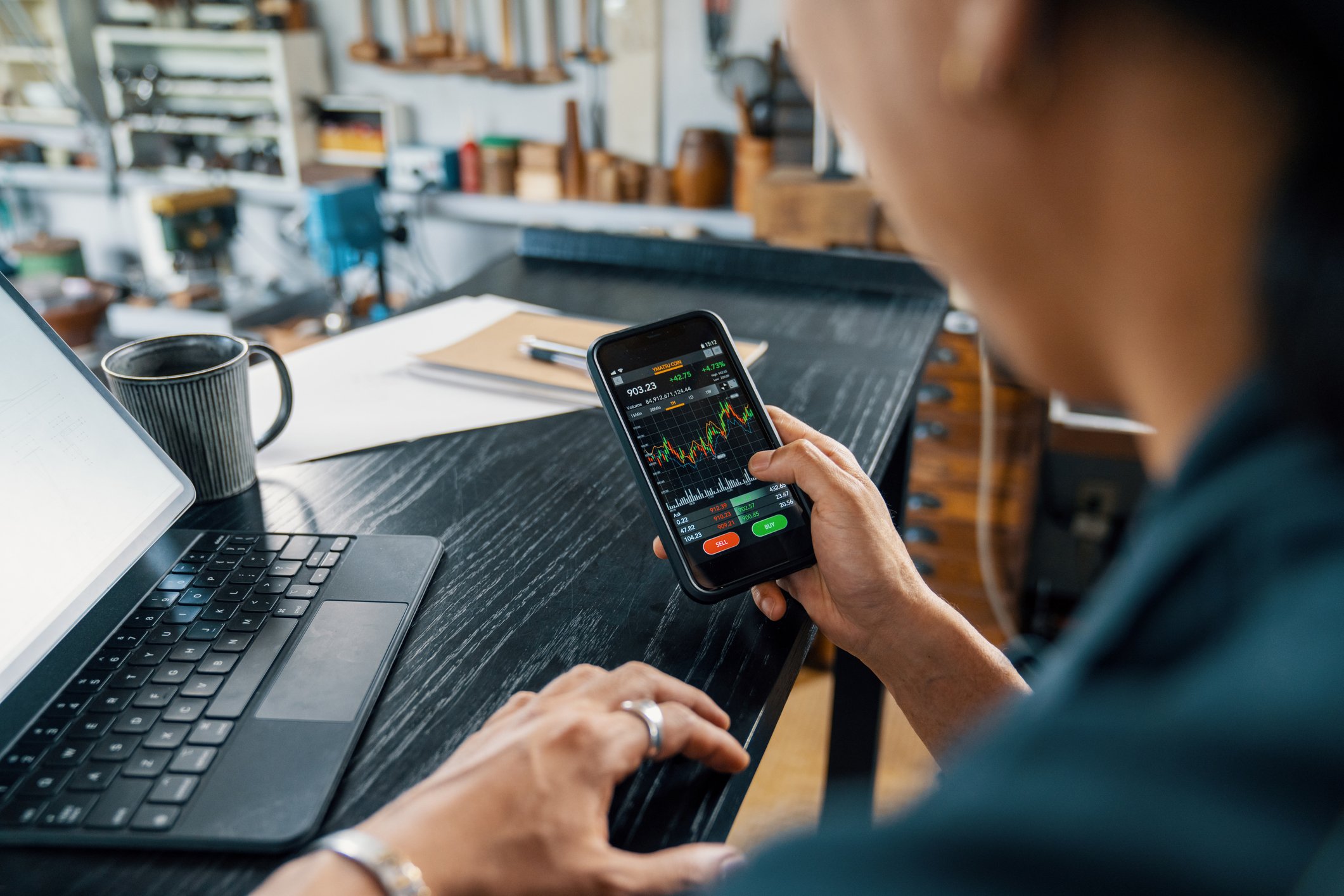Robinhood Markets (HOOD 0.24%) has grown beyond its early reputation for being the brokerage preferred by meme traders and retail speculators. Since its July 2021 IPO, it has become a major financial services company with millions of customers, offering differentiators beyond just its original gimmick of commission-free stock trading.
As a result, Robinhood Markets has become a very valuable company and was added to the S&P 500 in September 3035. Its $130 billion market cap is just $39 billion below that of Charles Schwab (SCHW +0.53%), one of the largest publicly traded brokerage companies, with a market cap of around $169 billion.
Sooner than you think, Robinhood could eclipse this "old school" competitor in terms of valuation. However, that may not necessarily mean that shares are a buy at current prices.

Image source: Getty Images.
How this upstart became a $130 billion force on Wall Street
Since 2013, Robinhood has pioneered making investing more accessible to everyday Americans. Through features like commission-free trading, plus its focus on its mobile app, the company's retail user base now totals 26.7 million.
Moreover, the company has turned this user base into a highly profitable business. Robinhood may not charge commissions on stock and options trades, but it makes substantial revenue from both interest on customer deposits and from "payment for order flow," or payments from market makers in exchange for sending customer orders their way.

NYSE: SCHW
Key Data Points
Last year, the company generated nearly $3 billion in sales, up over 57% from 2023. Earnings came in at $1.4 billion, or $1.56 per share, up 360% year over year. Sell-side analyst estimates call for sales growth to slow to 44.4% this year, and for earnings growth of only 16%. Still, with the stock trading for 71 times forward earnings, the market continues to anticipate far higher rates of growth in the years ahead.
Why Robinhood's run-up could continue
With shares up by nearly 300% year to date, bullishness regarding Robinhood's future growth remains high. This is largely due to the company's expansion into areas like crypto, tokenized assets, and prediction markets. Robinhood has also expanded into asset management.
These expansion efforts have yet to have a major effect on the bottom line. However, if initial results continue to appear promising, it's not a stretch that investors would continue to bid up Robinhood shares by another 30% or so -- enough for Robinhood to eclipse Charles Schwab in terms of market cap.

NASDAQ: HOOD
Key Data Points
It's also possible that Robinhood will bulk up its market cap through mergers and acquisitions with other fintech or crypto companies. For example, if Robinhood were to acquire a competitor like Coinbase (COIN 1.22%) or SoFi Technologies (SOFI +0.55%), upon the deal's close, Robinhood's market cap would rival, if not exceed, that of Charles Schwab.
Should you buy Robinhood stock?
Robinhood Markets could eventually become more valuable than Charles Schwab, but the real question is whether this makes shares a buy at current levels. If a Robinhood/Schwab "flippening" occurs in the near term, it'll likely be due to either a further speculative frenzy, or because Robinhood has bulked up its market cap via acquisition.
In either scenario, the company would still remain overvalued when assessing its current forward price-to-earnings (P/E) against analyst growth forecasts. At the very least, even as long-term growth potential remains promising, waiting for a pullback to buy in may be your best move.







